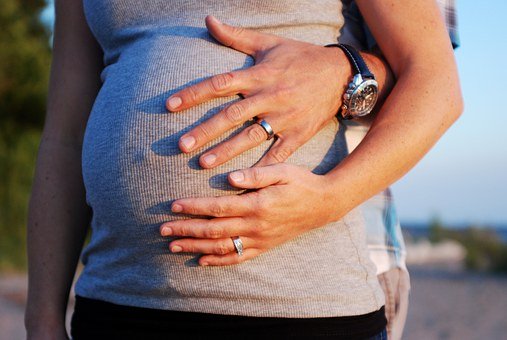Symptoms of Endometriosis

1. Dysmenorrhea and chronic lower abdominal pain
It is characterized by secondary and progressive dysmenorrhea, and abdominal and anal pain is the main symptom. It can start 1-2 days before menstruation and disappear after menstruation. Pain starts from the lumbosacral part and abdomen and radiates to the vagina, perineum, anus, or thigh.
The degree of pain is related to the location of the ectopic focus, but not directly proportional to the size of the focus. For example, a small ectopic nodule at the uterosacral ligament site can lead to the patient's unbearable pain, while a larger ovarian endometriosis cyst has less or no symptoms. 25% of patients have no dysmenorrhea, while 20% - 30% of patients with endometriosis have chronic lower abdominal pain.
2. Menstrual disorders
15% of patients with endometriosis can have more menstrual volume, longer menstrual period, or drip bleeding. It is because the ovary is destroyed by the ectopic cyst, or the ovary is surrounded by adhesion, which leads to the disorder of ovarian function and causes menstruation disorder. At the same time, the patients often have hysteromyoma or adenomyoma, which can also cause menorrhagia or prolonged menstruation.
3. Infertility
Endometriosis is often accompanied by infertility and has become one of the key reasons for infertility.

4. Painful sex
About 30% of endometriosis patients often complain of painful sexual intercourse, mostly due to mechanical stimulation. Endometriosis occurs in the rectocele and vaginal septum, causing swelling and fibrosis of the surrounding tissues.
#p#副标题#e#
During sexual intercourse, the uterus contracts and rises, causing pain. The degree of coital pain is related to the location of endometriosis, such as the ectopic nodule of sacrum ligament, low fixation after uterine adhesions, and the degree of coital pain in patients with closed Dow cavity.
5. Intestinal symptoms
If the endometriosis focus is located in the rectouterine excavation and near the rectum, constipation or diarrhea may also occur due to the congestion and edema of the focus during the menstrual period, which may stimulate the rectum and lead to anal distension, stool frequency or defecation pain.
If the focus invades the rectal wall and protrudes to the intestinal cavity or the focus is large, it may cause intestinal stenosis or obstruction. In a small number of patients, if the focus invades the deep intestinal wall and reaches the muscular layer, the local intestinal mucosa may be congested and edematous, which may lead to periodic stool with blood.
6. Urinary tract symptoms
If the endometriosis focus is located in the bladder and ureter, the patient may have periodic frequent urination, urodynia, and hematuria. Endometriosis is rare in the ureter.
Slow ureteral obstruction is usually caused by pelvic endometriosis, which leads to adhesion of the surrounding tissues or extrusion of large endometriosis cyst, resulting in distortion, stenosis or obstruction of the ureteral scar. Ureteral obstruction can lead to hydronephrosis and secondary compression renal atrophy.
#p#副标题#e#

7. Symptoms of endometriosis in other parts
If endometriosis implantation and growth in the other parts of the body, periodic pain, bleeding, and mass enlargement will occur in the lesion area, such as when the lesion occurs in the umbilical, abdominal wall wound and vulva.
If the focus involves the lung, pleura, or diaphragm pleura, menstrual pneumothorax will repeatedly occur during menstruation, and hemoptysis before menstruation, dyspnea, and/or chest pain may occur when lung parenchyma is involved. Endometriosis in the brain is very rare. If it occurs, it may lead to recurrent headaches and neurological dysfunction.
8. Acute abdominal symptoms
A small number of ovarian endometriosis cysts, in the premenstrual or menstrual period due to the increase of the pressure inside the capsule, have a break through the capsule wall. If the break is small, there are not many spills, and abdominal pain can be gradually relieved.
If the break is large, a large amount of the contents of the capsule overflows into the abdominal cavity, and it will cause acute abdominal symptoms, which is a new problem worthy of attention in the field of gynecology and obstetrics. It is often misdiagnosed as torsion of ovarian cyst pedicle, ectopic pregnancy, appendicitis, and diffuse peritonitis, and emergency operation is performed.
You may also be interested in:
You may also be interested in
- Endometriosis and Debilitating Bowel & Bladder Pain: Diagnosis, Treatments, and Hope for Relief
- Struggling with Endometriosis Symptoms? Proven Back Pain and Painful Sex Relief Options
- Severe Endometriosis Treatment: Chronic Pelvic Pain Relief and Infertility Solutions
- New Endometriosis Pill Approved on NHS: What This Means for Patients and the Role of Traditional Chinese Medicine
- Can Endometriosis Be Endured Until Menopause?
Testimonials
- Adenomyosis with Ureaplasma Urealyticum Cured by Fuyan Pill
- Tubal blockage with hydrosalpinx can be cured by TCM shortly
- Fuyan Pill Helps A woman with Adenomyosis Get Pregnant
- A Woman with Hydrosalpinx Is Cured with Fuyan pill
- Pelvic Inflammatory Disease Testimonials
- Irregular Vaginal Bleeding and Endometrial Thickening Cured by Fuyan Pill
- Pruritus Vulvae and Frequent Urination: Mycoplasma Infection Cured after 2 Courses



